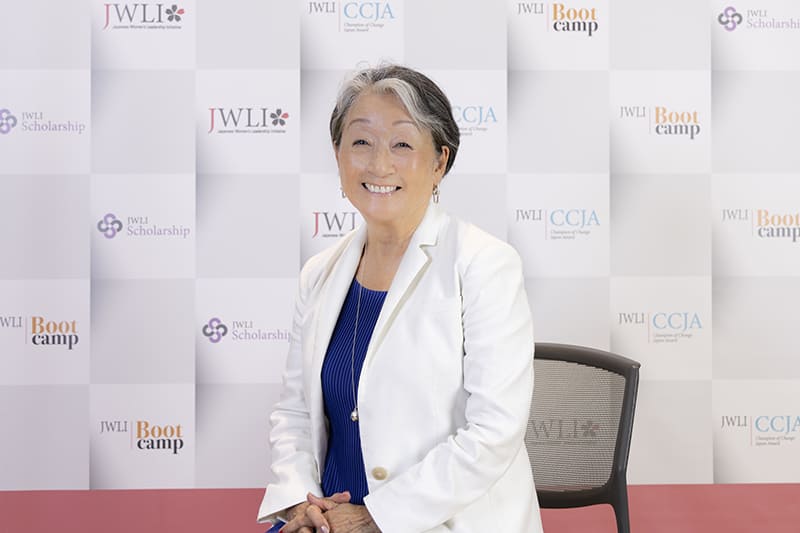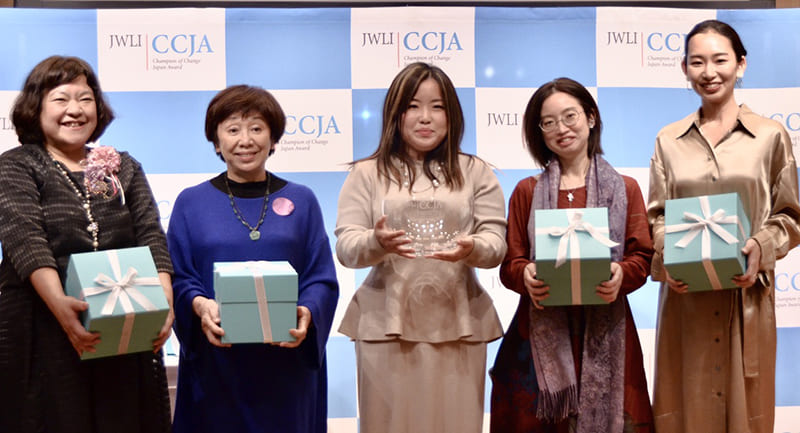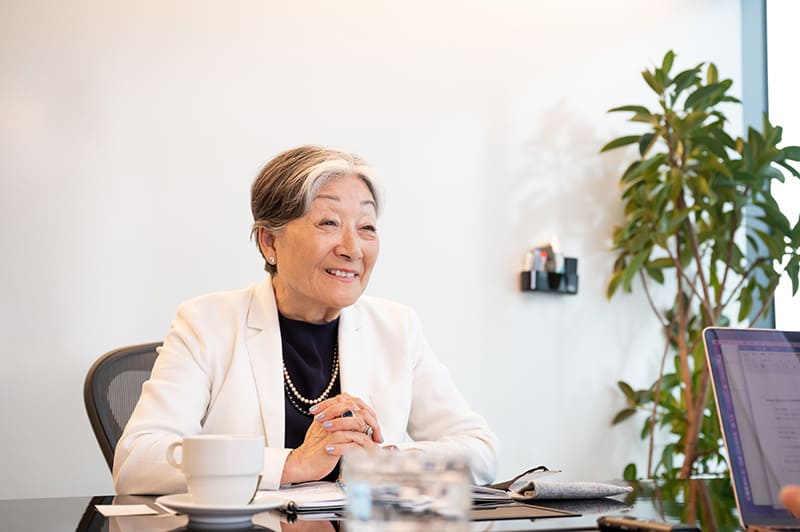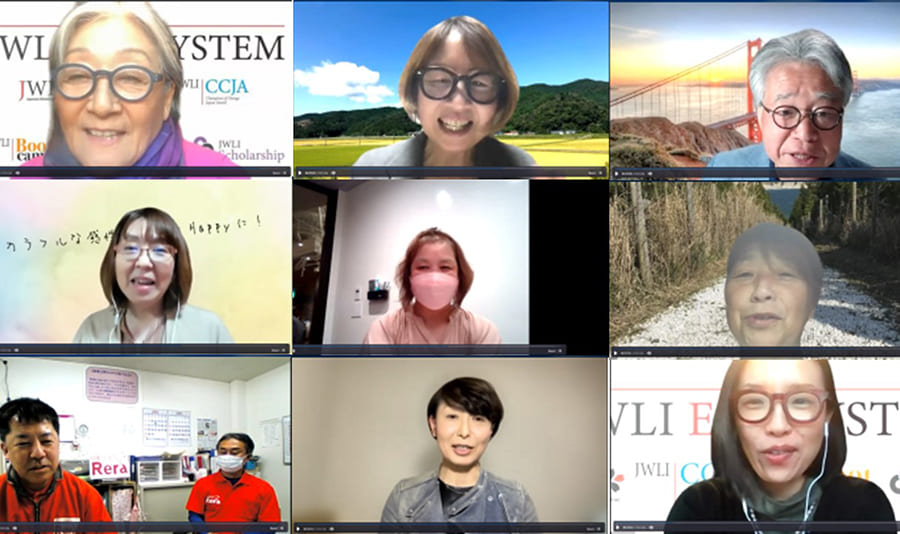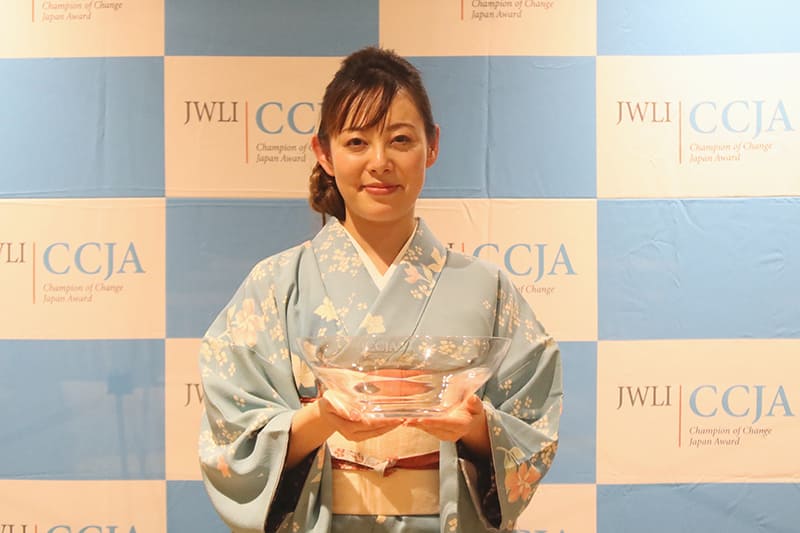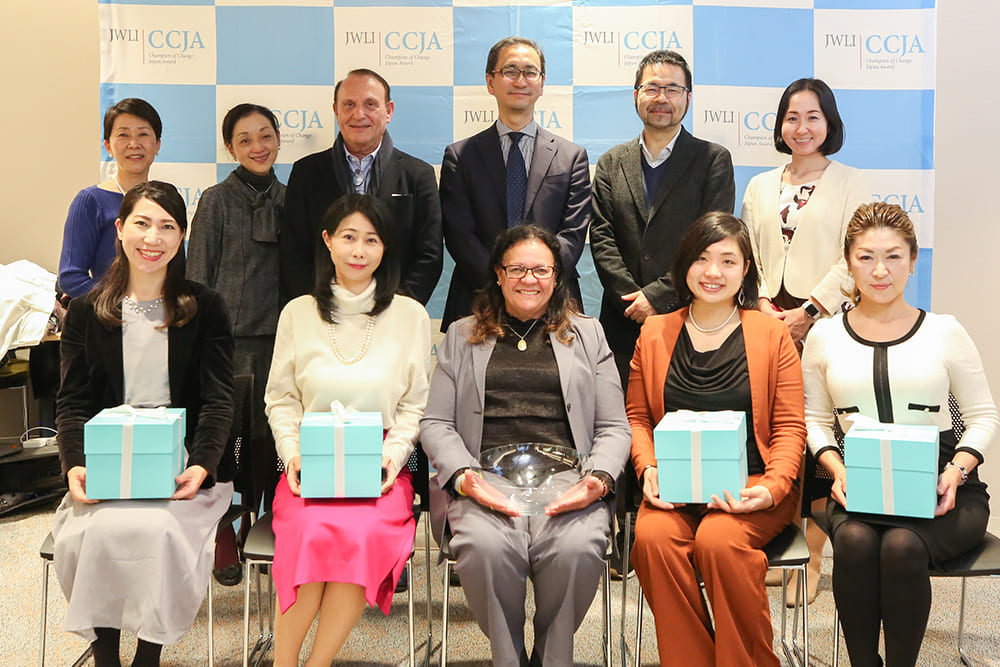January 12, 2024
CCJA winner’s restaurant helps local Asian women
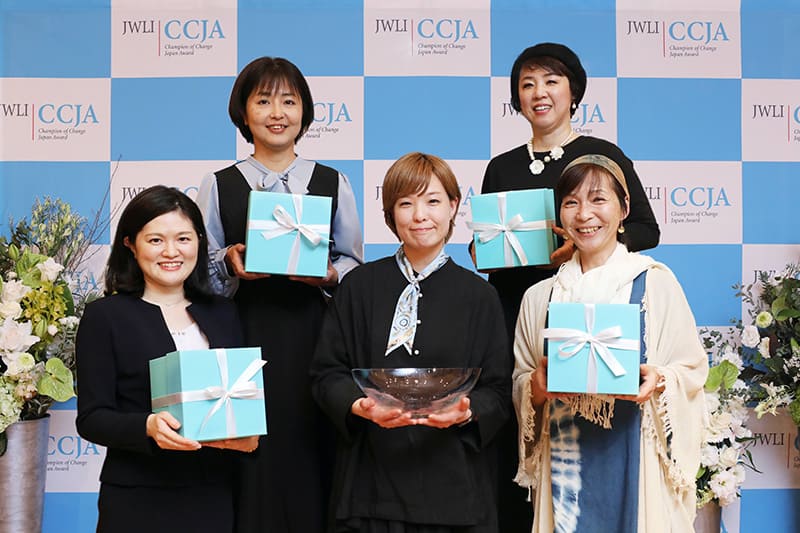
This year’s grand prize of the Champion of Change Japan Award (CCJA) went to Naoko Oku, who runs a restaurant to create jobs for Asian women living in Japan. The award ceremony was held in Tokyo’s Bunkyo Ward on Dec. 12 to celebrate Oku and four other women who were recognized for leading projects and businesses aimed at helping change society for the better.
Oku’s restaurant brings the Asian women more than just money. They gain confidence and make connections with the community through their work. In her acceptance speech, Oku said: “I want to create a society where people support each other to achieve the ‘empowerment of all people,’ which is our concept. And we aim to do it through business.”
The CCJA was established in 2017 by Atsuko Toko Fish, a Japanese philanthropist living in Boston, to recognize and encourage women leaders in Japan who contribute to society by addressing diverse social issues. Fish is a founding trustee of the private Fish Family Foundation, established in 1999 in Boston. Fish was selected in 2013 for the Champion of Change Award, founded by then-President Barack Obama to feature those who empower members of their communities. The joy and pride she felt upon receiving the award inspired her to establish CCJA to shed light on aspiring women leaders in Japan.
Five award winners were selected from among 200 nominations, with two rounds of selection followed by an interview. The selection committee consisted of Kozue Sawame, the newly appointed president of the Japanese Women’s Leadership Initiative, which is administered by the Fish Family Foundation, and five others who represented five sponsors and partners. Minako Suematsu, the chairperson and publisher of The Japan Times, was one of them. There were also eight other sponsors and partners who supported CCJA by providing the venue for the ceremony and additional prizes to the winners.
Oku received a cash prize of ¥1 million ($7,000) and a crystal bowl donated by Tiffany and Co. Japan Inc., one of the CCJA sponsors. The other four winners each received ¥250,000 and a commemorative gift presented by Tiffany.
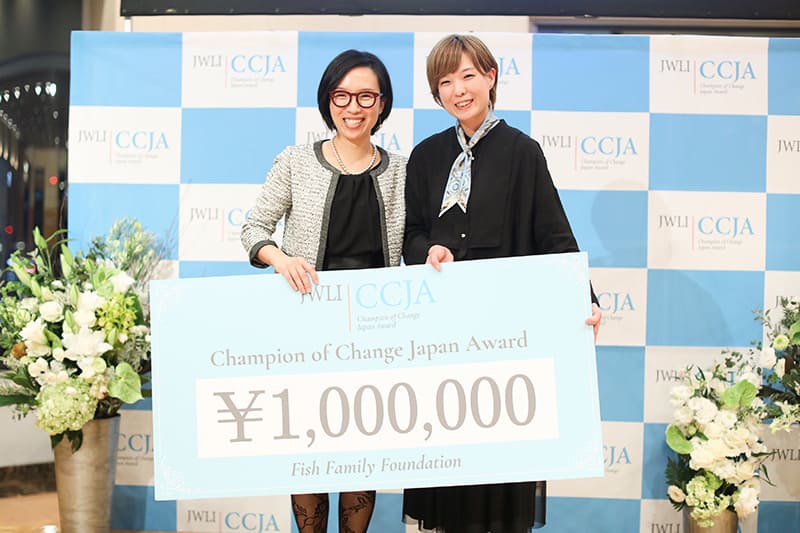
Oku opened Kobe Asian Shokudo Bar Sala in Kobe in 2016. Its staff members are Asian women living in the area who take turns as chef, cooking dishes from their own countries using the same ingredients that they use back home, offering customers opportunities to experience the unique tastes of various countries and encounter different cultures each time they visit.
When Oku was in the first year of university 15 years ago, she had an opportunity to learn about the hardships such Asian women faced. Many of them were married to Japanese or had come to Japan when their husbands were relocated here. Without the ability to communicate in Japanese, they lived in isolation, disconnected from the community.
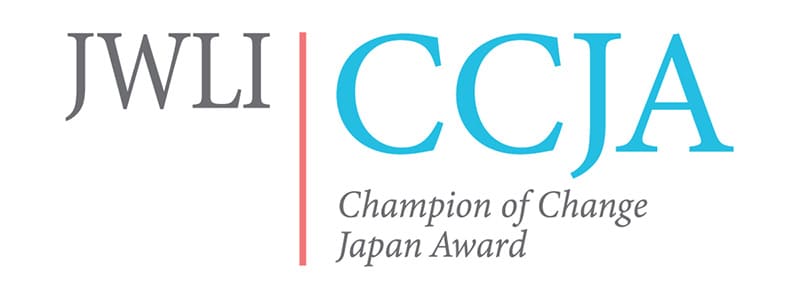
She expressed the recognition of the grand prize as “the embodiment of the fact that there are people who are watching you, willing to come and support you if you ask for help,” and said that the efforts of every one of the many supporters around her were essential in creating what the grand prize had honored.
“I appreciate that Sala’s social value has been recognized in recent years, and now I am especially committed to polishing our products and services and enhancing our business value,” Oku said. The reason why she is exceptionally passionate about improving what Sala and its staff members offer to their customers is because her eyes are set on how to approach people who are not particularly interested in the conditions of Asian women in the community. “I want to make the delicious food we serve the primary reason why people come to Sala. From there, some may become interested in who the workers are and why they are here,” she said, expressing her firm belief that reaching out to the masses is necessary to change society. She also shared her ambition of launching more restaurants to support women in other areas.
Oku said that the smallest interest and kindness can contribute to realizing a society in which people help and complement each other. “Imagine yourself as a foreigner, not being able to communicate with anyone, feeling alone. Even if you do not have a common language, you can be kind to other people who need help,” she said.
In concluding the award ceremony, Sawame said: “We have received 1,200 nominations for the award during the seven years since the launch of the CCJA. The 1,200 nominees include women in their 20s to 90s, from Okinawa to Hokkaido. They are our asset and pride as well as the proof that we have so many women leaders across the nation.” She congratulated the five winners and gave her blessing to their journeys ahead.
Atsuko Toko Fish
Founder of CCJA
I would like to express my sincere respect and gratitude to the five winners of this year’s Champion of Change Japan Award.
It seems to me that the world today is full of hope and uncertainty. In our grandchildren’s time, people will be able to travel freely to the moon and Mars, and cars will be flying in the sky. On the other hand, there is fear that in some areas people may still be hating each other, creating dire situations in the same old way. Japan may also face various contingencies. The kind of women leaders that we need in the current and future society is those who can take actions to solve local problems from global perspectives. The impacts these winners and other nominees are making are needed in every corner of the world. I hope that each one of them will grow to become global leaders who can connect with the world to protect human rights and bring about change to make society open, positive and inclusive.
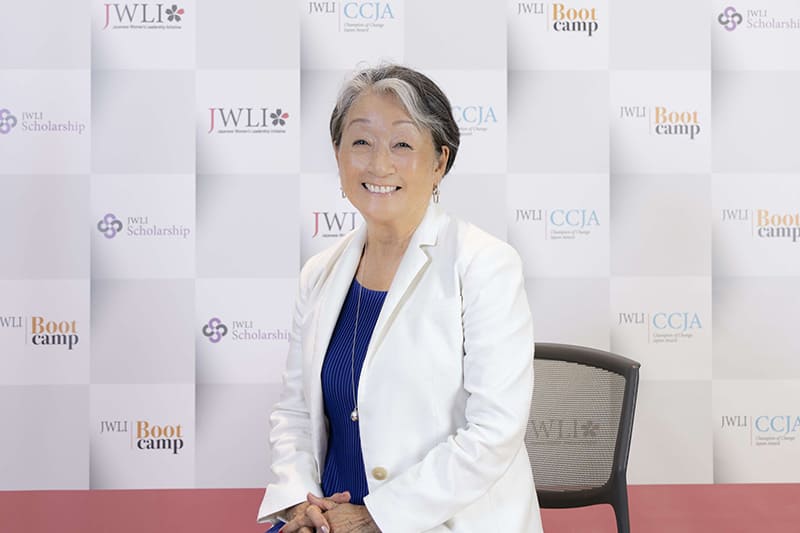
Four other winners tell of efforts for women and children
Haruka Oyama
Representative Director at Chaibora
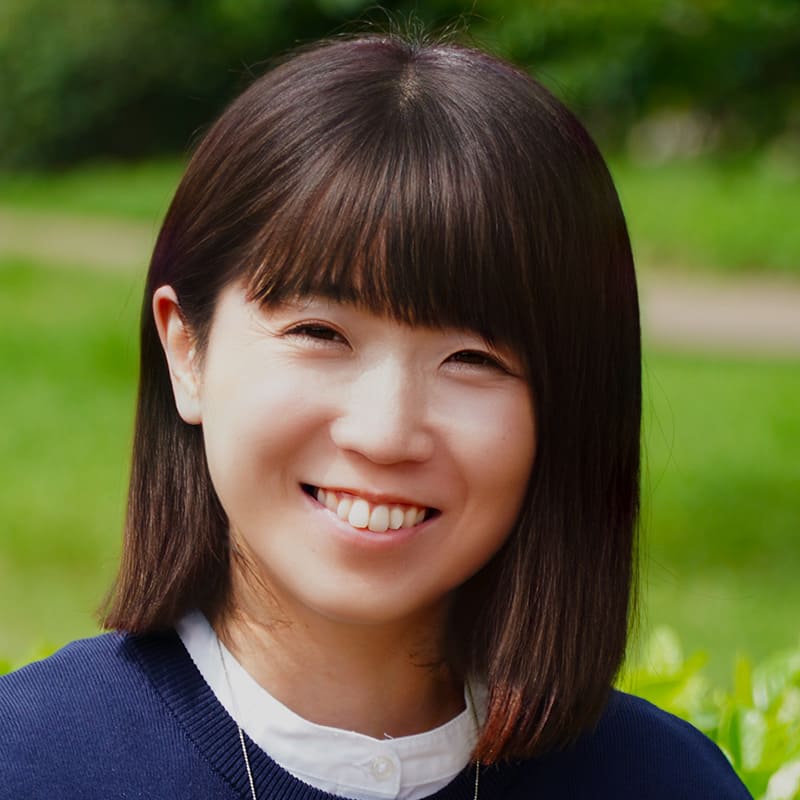
I established Chaibora, a nonprofit based in Tokyo that now supports 370 foster homes across the country, with my classmates at a school that had a program to train for child care qualification in 2018 after quitting my job at an education-related company. The reason why I decided to dive into the world of foster care was because of its desperate need for human resources, which I had learned about from a orphanage worker who said, “What we need is people rather than things.” We will make further efforts to connect these facilities and job-seekers and improve their retention rates. A continuing relationship with caring adults that is based on trust is of the utmost importance for the stability of youths. We hope that people try to deepen their understanding about foster homes to avoid prejudices and provide them with the support they need.
Toshiko Noguchi
Representative Director at Hakucho no Mori
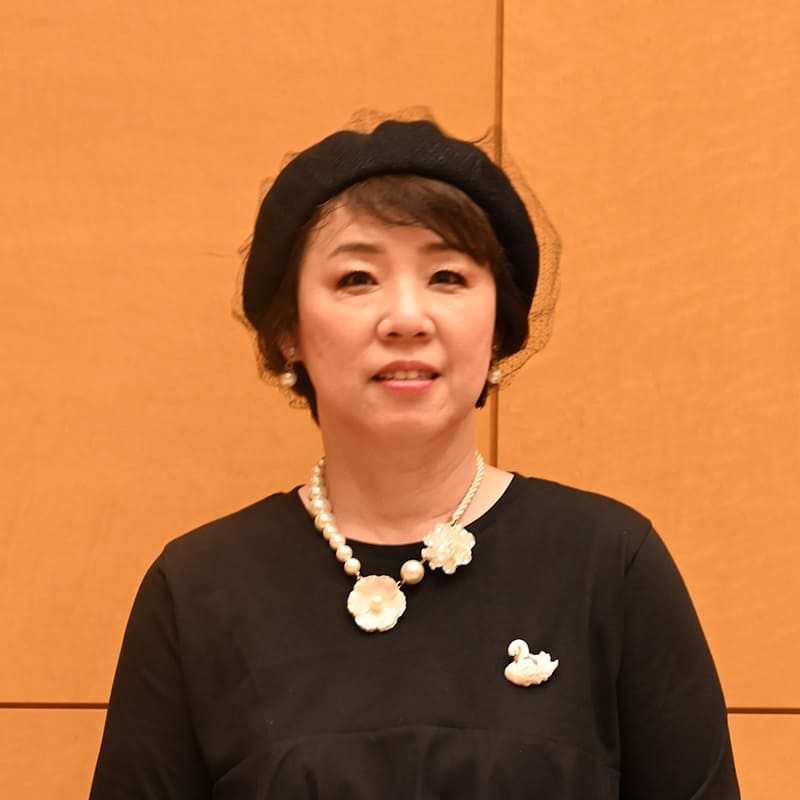
After engaging in support for victims of domestic violence at a municipal government, I established Hakucho no Mori (Swan Forest) in the Tokushima Prefecture city of Naruto to further protect and empower the victims. They are neither weak nor pitiful. They become deprived of their true strength because of violence. We are currently supporting 84 women, and our shelter is always full. Gaining economic power has always been a challenge for them because it is difficult to find stable and long-term jobs under the conditions of just barely having managed to escape from offenders. We are trying to create an internal system that allows us to create new jobs so that we can hire them. Society needs support for victims, rehabilitation for offenders and education to prevent youths from becoming neither victims nor offenders.
Miyako Nagatomo
Lala Social
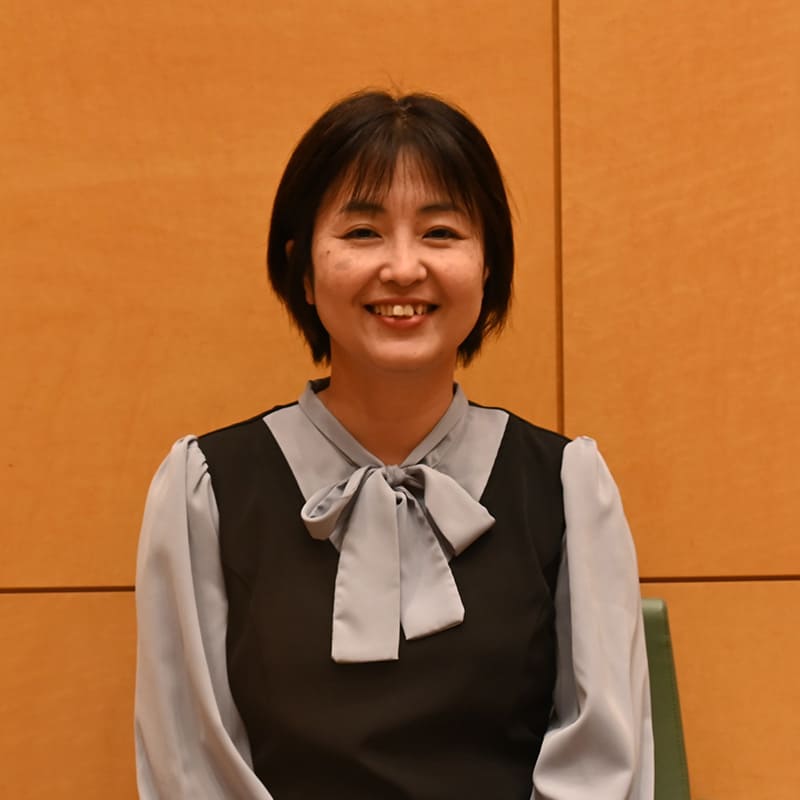
Lala Social supports various social projects and activities aimed mainly at supporting mothers and children in Miyazaki Prefecture to address the pressing need to prevent child abuse. We publish newsletters to provide information on parenting, promote kodomo shokudō (cafeterias that provide meals to children for free or at low prices) and food delivery to families in need, and support the establishment of food banks and various other networks. As a nutritionist, I am now working on a plan to create jobs related to agriculture and food distribution that could solve the issues of poverty and food loss at the same time. I hope that the recognition of various social activities carried out in rural areas will lead to a deeper understanding by the national government about the realities of the countryside and reflect that in its policymaking.
Masako Tanaka
REPRESENTATIVE AT KODOMO MUGEN COMPANY
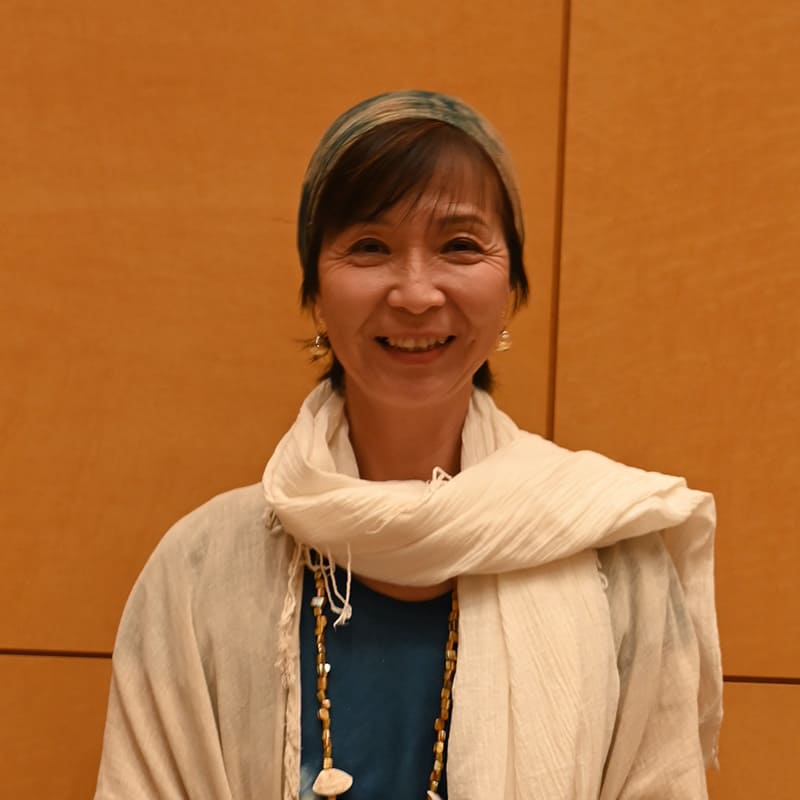
Through the 25 years of my career related to children, I have met kids with various family issues and those suffering from abuse, truancy or other problems. It is said that a child is raised by 10 different adults, but children open their hearts only to those who successfully build a relationship of trust with them. Kodomo Mugen Co., a nonprofit established in the Miyagi Prefecture city of Ishinomaki, offers places including parks and a free school where children can meet and communicate with adults who care about them. Children are important members of the community, but there are no places where their opinions and needs are properly heard even though Ishinomaki is one of the few municipalities with an ordinance on children’s rights. We are currently working on a plan to establish a new school reflecting the voices of children.

